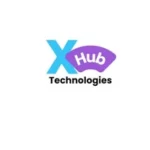
Digital marketing has become an essential part of business growth in 2025. With technology evolving at a rapid pace, businesses need to stay updated with the latest trends, tools, and strategies to reach their audience effectively. From search engine optimization (SEO) and social media to AI-powered marketing tools, digital marketing is transforming how brands engage with customers and drive sales.
What is Digital Marketing?
Digital marketing is the promotion of products or services using online channels. It includes SEO, social media marketing, email marketing, content marketing, pay-per-click (PPC) advertising, and more. The goal is to reach a target audience, generate leads, increase brand awareness, and boost sales. Unlike traditional marketing, digital marketing allows for precise tracking, personalized campaigns, and real-time optimization.
Key Trends in Digital Marketing 2025
Several trends are shaping the future of digital marketing in 2025:
- AI-Powered Marketing:Artificial intelligence is being used for predictive analytics, personalized content, chatbots, and customer engagement, making campaigns more effective.
- Voice Search Optimization:With the rise of smart speakers and voice assistants, optimizing content for voice search is critical for visibility.
- Short-Form Video Content:Platforms like TikTok, Instagram Reels, and YouTube Shorts are dominating, making short, engaging videos essential for brand promotion.
- Interactive Content:Quizzes, polls, augmented reality (AR), and interactive infographics are increasing engagement and user participation.
- Influencer Marketing:Collaborating with micro and nano-influencers helps brands reach niche audiences more effectively and authentically.
- Data Privacy and Compliance:With stricter regulations, marketers must ensure data collection and usage comply with laws like GDPR and CCPA.
Search Engine Optimization (SEO) in 2025
SEO remains a cornerstone of digital marketing. In 2025, SEO strategies are more sophisticated, focusing on user intent, AI-driven search algorithms, and high-quality content. Key SEO practices include:
- Optimizing content for semantic search and voice queries.
- Improving page speed, mobile usability, and user experience (UX).
- Using structured data and schema markup to enhance search visibility.
- Building high-authority backlinks and maintaining a strong domain reputation.

Social Media Marketing Strategies
Social media continues to dominate digital marketing. Platforms like Instagram, TikTok, YouTube, LinkedIn, and X (Twitter) are essential for brand visibility and engagement. In 2025, effective social media strategies include:
- Creating authentic, short-form video content that resonates with audiences.
- Engaging with followers through comments, live sessions, and polls.
- Leveraging paid social ads for targeted campaigns.
- Collaborating with influencers to increase credibility and reach.
Email Marketing and Automation
Email marketing remains one of the highest ROI channels. AI-powered automation helps marketers personalize campaigns based on user behavior, interests, and purchase history. Strategies include:
- Segmenting audiences for tailored messaging.
- Automating follow-up emails and drip campaigns.
- Using AI to predict user preferences and optimize subject lines.
- Integrating email campaigns with social media and content marketing efforts.
Content Marketing in 2025
Content is still king in digital marketing. High-quality, informative, and engaging content drives traffic, builds trust, and converts leads into customers. Key practices include:
- Publishing long-form blogs, guides, and case studies optimized for SEO.
- Creating interactive and visual content like infographics, videos, and AR experiences.
- Using AI tools for content research, generation, and performance tracking.
- Repurposing content across multiple platforms to increase reach.
AI and Automation in Digital Marketing
AI is transforming digital marketing by providing predictive analytics, chatbots, personalization, and automation. Businesses can analyze customer behavior, forecast trends, and deliver targeted campaigns efficiently. AI tools also help in content creation, ad optimization, and performance analysis, allowing marketers to focus on strategy and creativity.
Measuring Digital Marketing Success
Metrics and analytics are critical for evaluating digital marketing campaigns. Key performance indicators (KPIs) in 2025 include:
- Website traffic, page views, and bounce rates.
- Conversion rates, lead generation, and sales growth.
- Social media engagement, shares, and follower growth.
- Email open rates, click-through rates, and subscriber retention.
- Return on investment (ROI) for paid campaigns and ads.
Challenges in Digital Marketing
Digital marketing in 2025 comes with challenges, including:
- Keeping up with constantly changing algorithms and platform policies.
- Managing data privacy and complying with regulations.
- Creating personalized experiences at scale.
- Standing out in an increasingly crowded digital space.
Conclusion
Digital marketing in 2025 is dynamic, data-driven, and highly competitive. Businesses that embrace the latest trends, leverage AI tools, optimize SEO, and engage audiences through social media and content marketing will thrive. By combining creativity, strategy, and technology, brands can achieve meaningful connections, higher conversions, and sustainable growth in the digital age.













